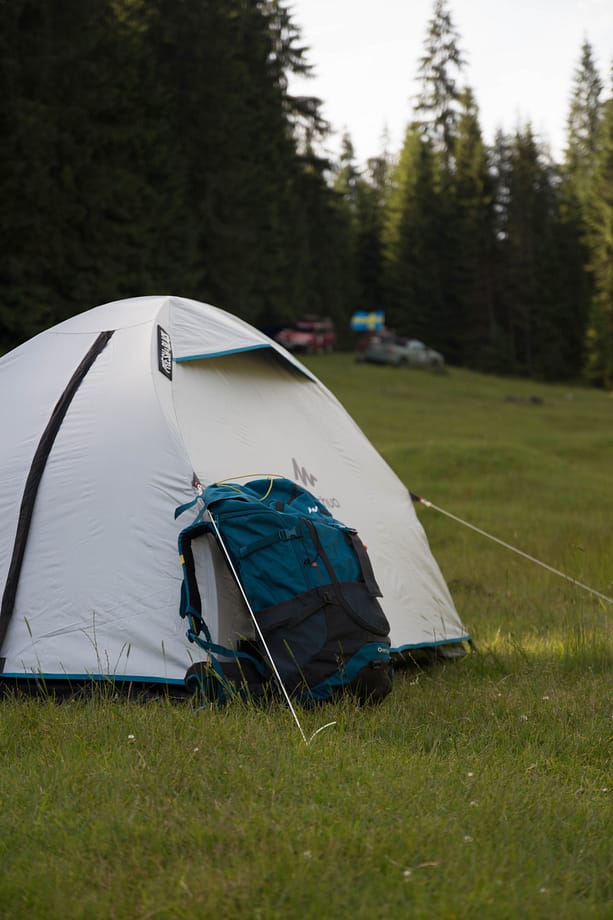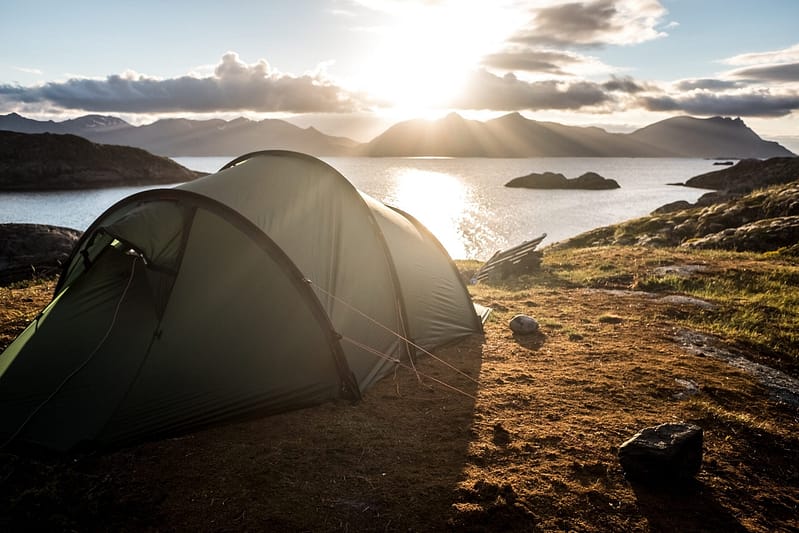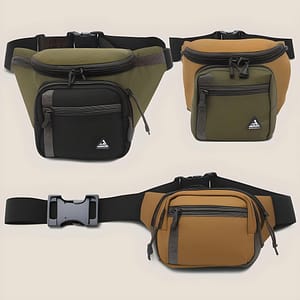What is a blackout tent?
Blackout tents have become increasingly popular among campers, and for good reason. These specially designed tents offer a range of benefits that can greatly enhance your camping experience. Whether you’re planning a family camping trip or a solo adventure, a blackout tent might be just what you need. In this blog post, we will explore the benefits of blackout tents and why you should consider investing in one for your next camping excursion.
A blackout tent is a type of tent that is specifically designed to block out sunlight and other external light sources. Manufacturers make these tents typically made with dark-colored fabric that is highly opaque, preventing any light from entering the tent. This creates a pitch-black environment inside the tent, even during daylight hours.
If you have a tent it is not a blackout tent and you do not want to purchase a blackout tent, we also have tips on how to blackout a “regular” tent
What are the benefits of using a blackout tent?
Blackout tents have become increasingly popular among camping enthusiasts for their numerous benefits. These tents are designed to block out sunlight, providing a dark and comfortable sleeping environment. Here are some advantages of using a blackout tent:
1. Improved sleep quality: One of the primary benefits of a blackout tent is that it allows you to have a better night’s sleep. By blocking out sunlight, these tents create a dark and peaceful atmosphere, ensuring you are not disturbed by early morning light or artificial lighting from nearby campsites.
2. Temperature regulation: One of the primary benefits of blackout tents is that they create a darker and cooler environment inside. Blackout tents are often made with double-layered fabric, which helps with insulation. This feature can keep the tent cooler during hot summer days and warmer in colder weather conditions, making them ideal for camping in all seasons.
3. Privacy: Blackout tents provide an added layer of privacy compared to regular tents. The opaque material used in blackout tents prevents people from seeing inside, ensuring that you can have a sense of seclusion and privacy while camping. This is especially important if you’re camping in crowded campgrounds or areas where there are other campers in close proximity
4. Protection from insects: The double-layered construction of blackout tents also helps to keep insects and bugs out. The inner layer acts as a barrier, preventing any unwanted visitors from entering your sleeping area.
5. Versatility: Blackout tents are suitable for various camping activities, including family camping trips, festivals, or even backyard camping. They can accommodate multiple sleepers and provide a comfortable and private space for everyone.
What are the disadvantages of using a blackout tent?
While blackout tents offer numerous advantages, they do have a few disadvantages to consider. Here are a few potential drawbacks of using a blackout tent:
1. Limited Natural Light: As the name suggests, blackout tents block out most, if not all, natural light. While this can be beneficial when trying to sleep in or take a nap during the day, it may also make the tent feel dark and claustrophobic, especially if you’re spending an extended period of time inside.
2. Reduced Ventilation: Some blackout tents may have limited ventilation compared to traditional tents. This can result in less airflow, leading to increased humidity and potential condensation inside the tent. It’s important to choose a blackout tent that has adequate ventilation options to ensure comfort and prevent moisture buildup.
3. Higher Cost: Compared to regular tents, blackout tents tend to be more expensive due to their specialized features. While the extra cost may be justified for those who prioritize darkness and insulation, it may not be worth it for occasional campers or those on a tight budget.
4. Additional Weight: Blackout tents often have thicker and heavier materials to provide insulation and block out light effectively. This can make them bulkier and more challenging to transport, especially if you’re backpacking or have limited space in your vehicle.
5. Limited Use: Blackout tents are specifically designed for camping in areas where you want to block out light, such as festivals, late-night events, or areas with extended daylight hours. If you primarily camp.

How do you set up a blackout tent?
Here are some tips on how to install a blackout tent.
1. Choose the right tent: When selecting a blackout tent, look for one that is specifically designed to block out light. These tents are made with special materials that are opaque and restrict the amount of light coming into the tent. Look for tents that have a rainfly or an added layer that can be attached to block out even more light.
2. Set up your tent in a shaded area: Before setting up your tent, scout the campsite for a shaded area. Setting up your tent under a tree or near a large rock can minimize the amount of sunlight that enters the tent. This natural shade will work in conjunction with the blackout features of the tent to create a darker environment.
3. Lay out the tent: Unpack the tent and lay it flat on the chosen location. Make sure the door is facing the desired direction and don’t forget to close all the zippers.
4. Assemble the poles: Most blackout tents come with pre-attached poles, making the setup process quicker. Start by unfolding the poles and connecting them together. Slide the poles through the designated pole sleeves or clips on the tent body.
5. Raise the tent: With the poles in place, gently lift the tent off the ground. As you lift, the tent will start to take shape. Once the tent is standing upright, secure the poles by attaching them to the corresponding grommets or clips on the tent body.
6 Stake the tent: Using the provided stakes, secure the tent to the ground. Insert the stakes through the loops or rings located at the bottom corners of the tent. Hammer the stakes into the ground at a slight angle to get a good anchorage.
Are blackout tents waterproof?
Yes, blackout tents are typically waterproof. These tents are specifically designed to block out the light, which also means they have to be resistant to water. Blackout tents are made with high-quality materials that provide excellent waterproofing capabilities, ensuring that you stay dry and comfortable even during heavy rain or wet conditions.
The waterproof feature of blackout tents is essential for camping, as it helps to keep you and your belongings dry. Whether you are camping in the mountains or near a lake, having a waterproof blackout tent is crucial to protect yourself and your gear from getting wet.
Furthermore, blackout tents are also great for families or individuals who value their privacy. The blackout feature blocks out all external light, creating a dark and cozy environment inside the tent. This is especially advantageous for families with young children who need to sleep during the day or for campers who prefer to sleep in complete darkness.
How much blackout tent cost?
The cost of a blackout tent can vary depending on the brand, size, and features. Generally, blackout tents range in price from $100 to $500 or more. The price may also be influenced by additional features such as insulation, double-layer construction, and advanced ventilation systems.
When purchasing a blackout tent, it’s important to consider your budget as well as your specific camping needs. If you plan to use the tent frequently or in extreme weather conditions, investing in a higher-quality and more expensive blackout tent may be worth it to ensure durability and performance.
You can find blackout tents at outdoor retailers, camping supply stores, and online marketplaces. Popular online platforms like Amazon, REI, and Camping World offer a wide selection of blackout tents with varying prices and customer reviews. Before making a purchase, be sure to read product descriptions, customer reviews, and compare prices to find the best option for your camping adventures.
By the way, we have more info on different types of tents and their price range, you can check one of them here
How long do blackout tents typically last?
The lifespan of a blackout tent can vary depending on several factors, including the quality of materials, frequency of use, and how well it is maintained. On average, a well-maintained blackout tent can last anywhere from 5 to 10 years.
To ensure the longevity of your blackout tent, it is important to follow a few maintenance tips. Firstly, make sure to properly clean and dry the tent after each use to prevent mold and mildew growth. Avoid storing it while damp, as this can damage the fabric and compromise its waterproof properties.
Regularly inspect the tent for any signs of wear and tear, such as tears, broken zippers, or damaged poles. Repair any minor damages promptly to prevent them from becoming major issues.
It is worth mentioning that the lifespan of a blackout tent can be extended by using a groundsheet or footprint to protect the tent’s floor from abrasion and punctures. Additionally, using a rainfly or tarp over the tent can provide extra protection from the elements and prevent excessive UV exposure.





